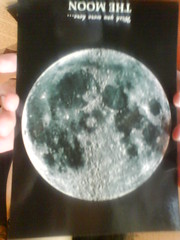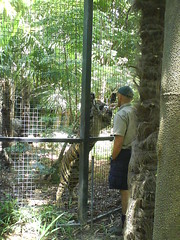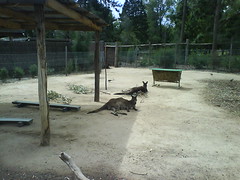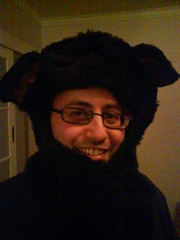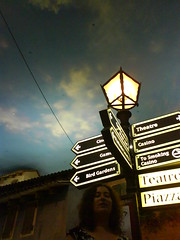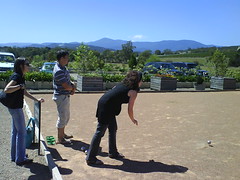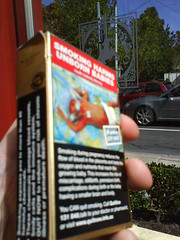Authors Thomas B Allen and Norman Polmar effectively disagree with AC Grayling’s thesis in Among The Dead Cities that those bombings were war crimes. They follow the slow, island-by-island crawl of Allied troops towards Japan, the high casualties suffered by both sides and the Japanese refusal to surrender or even to acknowledge protocols like not shooting at stretcher bearers or those brandishing white flags. Islands commited mass suicide rather than give in to the Americans; on one island Japanese soldiers were still resisting invasion until the 1970s.
Admittedly, tales of the horrors suffered by Allied POWs and the spread of a particular photograph of a beheading meant that the Allied troops weren’t exactly prone to winning heart and minds, let alone taking prisoners. But the general idea is that an invasion would have been a Bad Thing.
Had the bombs not been dropped, Codename Downfall would have been carried out in two distinct parts. Operation Majestic (formerly Olympic) was the invasion of the south island of Kyushu. This would have established air and army bases (perhaps at the strategic port of Nagasaki) that could then lead to Operation Coronet – the invasion of the main island of Honshu. Plans were well advanced by the time President Truman made his decision about the hydrogen bomb, and the book examines the attitudes, knowledge and estimates of those involved to piece together what might have been.
On 16 June 1945, General MacArthur was asked to supply estimates for battle casualties in the invasion of Kyushu. He sent back his expectations of dead, wounded and missing from the day of landing: in the first 30 days, 50,800; in the next 30 days, 27,150; the next 30 days, 17,100. There were also 4,200 ‘non-battle casualties … for each 30 day period.’
MacArthur was what people sometimes call "single-minded" when what they actually mean is "a shit". He'd got his plan and whatever the evidence, alternatives or men-who-would-be-killed, he was not going to budge.
When he realised that these figures had been requested for the President, who was considering other options, MacArthur,
“back-pedalled from his original estimate, saying it had been ‘a routine report … for medical and replacement planning purposes. … I regard the operation as the most economical one in effort and lives that is possible.’”
Thomas B Allen and Norman Polmar, Codename Downfall – The Secret Plan to Invade Japan, p. 241.
But MacArthur knew full well what a horrid war this would be, and tended to speak less in numbers of casualties as ratios of Japanese to American killed. The authors explain the ideological underpinnings of ‘special attacks’ – i.e. suicide planes, submarines and individuals. The original ‘kamikaze’ or sacred wind was a hurricane that had wrecked Kublai Khan’s invading fleets in 1274 and again seven years later – the last time anyone had dared try an invasion on Japan.
We get details of the civilian population trained to use bamboo spears, “flame bottles” (Molotov cocktails) and “spider-holes” (fox-holes). And all I could think of was another civilian population being bigged up for imminent invasion with encouragement to fight on the beaches, on the landing grounds, in the fields and streets, and in the hills.
“We shall never surrender, and even if, which I do not for a moment believe, this Island or a large part of it were subjugated and starving, then our Empire beyond the seas, armed and guarded by the British Fleet, would carry on the struggle, until, in God's good time, the New World, with all its power and might, steps forth to the rescue and the liberation of the old.”
Despite this impossibly hostile force, MacArthur resisted any suggestion that they might conclude the war another way.
“[MacArthur] had absolute confidence in his own battle plan, little confidence in any information that came from Magic or Ultra, the code name for intercepted Japanese military communications. Willoughby had recently reported that US air forces were not doing enough to stop Japanese reinforcements from reaching southern Kyushu. But when MacArthur wanted to refute Ultra’s penetration of Japanese Army movements in his message to Marshall, he proclaimed his faith in air power’s ability to knock out the Japanese reinforcements coming to Kyushu.”
Allen and Polmar, pp. 266-7.
The authors argue that MacArthur disliked Ultra for two reasons: it had proven him wrong about Japanese strengths and intentions; and the intelligence came via the US Navy – MacArthur’s rivals in leading US troops through the Pacific. I wasn’t just horrified that these office-politics wranglings about who had the biggest willy were going to greatly increase the numbers killed and wounded. MacArthur was also adamant about who he’d be sending to their sudden deaths.
“By MacArthur’s personal orders, only American troops would go ashore for the climactic invasion of the war. And all the assault troops would be white.”
Ibid., p. 300.
Oh yes. But before we start daring to think that this madman was also some kind of racist, he did explain his thinking.
“The British initially proposed that British, Australian, Canadian, New Zealand, and Indian divisions participate in Coronet, but General MacArthur objected to the Indian troops – ‘I doubt the advisability of employing troops of native origin in this complex operation where homogeneity of language within the corps is required … Likewise, there is a question of the advisability of utilizing troops in a temperate zone without an extended period of acclimatization, hence the acceptance of Indian troops is not concurred in. The British division [sic] should be Anglo-Saxon.”
Ibid., p. 160.
So, er, Asians should not fight in Asia because they wouldn’t cope with the climate. It’s obvious, isn’t it? And also it’s not like the Indians in the British Army could be expected to speak the language.
MacArthur also had views on the make-up of troops under his own command.
“Walter White, head of the National Association for the Advancement of Coloured People, had complained to President Roosevelt about the Army’s treatment of black troops, focusing on a division serving under MacArthur – the 93rd Infantry. MacArthur, attacking White as a ‘troublemaker and a menace to the war effort,’ said the 93rd was inferior to other divisions ‘except in the matter of motor maintenance,’ with poor morale – ‘as evidenced by courts martials, homosexual activities, selfmaiming, alleged discrimination, etcetera.’ MacArthur said his decision to order was ‘not, repeat not influenced in the slightest degree by race or color…’”
Ibid., p. 237.
Got that – he’s not a racist because he said so himself.
And it wasn’t that the Army didn’t have any use for black soldiers – they just weren’t going to be part of the actual invasion. Many soldiers in the US Army were discharged after VE Day, but there were exceptions for those with special skills or those who,
“had to be shipped to the Pacific ‘so swiftly that no opportunity is provided for replacing’ them … Many of the men in the ‘so swiftly’ category were black soldiers – the pick-and-shovel GIs who would build the port facilities and air bases needed for the invasion of Japan."
Ibid., p. 237.
But what really amazes me is that MacArthur seemed to think that getting yourself blown to bits in the invasion of Japan was some kind of high-esteemed privilege. Getting hacked to bits by the Japanese civilian home guard was not the sort of thing for just anyone.
Oh, and an entirely unrelated but interesting top fact: the Japanese attacked the west coast of the USA with explosive balloons, which mostly did no harm to anyone.
“But on 5 May 1945, Mrs Elsie Mitchell and five children were killed. While fishing in Lake County, Oregon, they found a Japanese balloon bomb that detonated when they examined it. They were the only casualties of enemy action on the US mainland during the war.”
Ibid., p. 222.
This reminded me of a thing in something else I’d been reading, about the space race of the 1950s and the not-often-spoken fact that a lot of the rockets in development were designed to carry nuclear payloads.
“But in 1957 came the shock of Sputnik. The psychological effect on the Americans was considerable… In the US it was felt almost as an invasion of the country. Britain had suffered bombing of London as early as 1916, but the US had never experienced hostile aircraft in the skies. Sputnik was perceived in those terms.”




